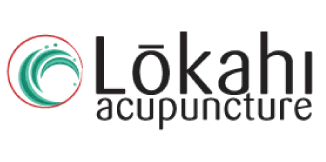What you should know:
Facing infertility and fertility struggles can be a daunting and prolonged journey. Fortunately, there are various treatment options available to couples seeking to conceive. Acupuncture, both as a standalone therapy, and in conjunction with Western medicine, is one approach to enhance the effectiveness of fertility treatments. In this blog post, we will explore the role of acupuncture in addressing fertility challenges, its mechanisms, and essential considerations before embarking on this treatment path.
Acupuncture is a form of Chinese medicine that involves the use of needles to stimulate specific points on the body. The practice has been around for thousands of years and is known for its ability to promote physical and emotional wellbeing. Acupuncture for fertility involves the insertion of needles into specific points of the body, with the aim of improving reproductive function.
Studies have found that acupuncture can increase the success rate of fertility treatments such as IVF, IUI, and hormone therapy. Acupuncture also helps alleviate side effects associated with these treatments, including pain, nausea, and fatigue. Furthermore, acupuncture is non-invasive, painless, and low-cost, thus making it an attractive complement to modern fertility procedures.
It is important to note that fertility is a journey, and we highly recommend that both partners undergo acupuncture treatment. This helps reduce stress and anxiety, enhances the overall experience, and increases the chances of a successful outcome. We believe that acupuncture can be a helpful adjunct to modern fertility treatments, and we’re dedicated to helping our patients achieve their dream of starting a family.
Acupuncture for fertility is a safe, painless, and low-cost complement to modern fertility treatments. It works by stimulating specific points on the body to improve reproductive function and increase the success rate of fertility treatments. At Lokahi Acupuncture, we take a comprehensive approach to fertility treatment, examining every aspect of our patients’ lives to develop an actionable treatment plan. We believe that a holistic approach to fertility treatment improves the overall experience and the chances of a successful outcome.

Citations:
“The status and future of acupuncture mechanism research” – This study explores the mechanisms of acupuncture and its potential benefits in enhancing the success of IVF treatments. Source
“The role of acupuncture in the management of subfertility” – This research reviews studies on the effects of acupuncture on IVF outcomes and discusses its potential role in improving fertility. Source
“Acupuncture and in vitro fertilization research: Current and future directions” – This article examines the current use of acupuncture alongside IVF cycles and highlights its long-standing history in supporting fertility. Source
“Use of acupuncture in female infertility and a summary of recent acupuncture studies related to embryo transfer” – This study summarizes recent research on the effects of acupuncture before and after embryo transfer and its impact on pregnancy rates. Source
“Development of a fertility acupuncture protocol: defining an acupuncture treatment protocol to support and treat women experiencing conception delays” – This research focuses on developing a consensus among acupuncture fertility specialists to establish an effective treatment protocol for women experiencing conception delays. Source
